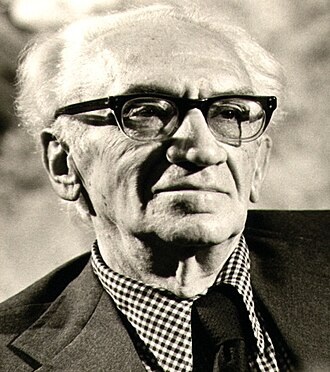
Velikovsky and the Forgotten Catastrophy
A review of Immanuel Velikovsky’s book, (1987):
Mankind in Amnesia – (transl. from the American by F. W. Gutbrod; Ullstein, Frankfurt / M. and Berlin)
The book, published in the USA in 1982, three years after Velikovsky’s death, was described by the author himself as his legacy. He thought it imperative that it appear as soon as possible. “In contrast to my previous books, it has to do not only with the past, but primarily with the future – a future that is not thousands or tens of thousands of years away, but that lies immediately before us and on the threshold of which we now stand,” he said in a seminar in 1971 (in the foreword by L. E. Rose to the book).
A generation has passed since then without any progression but the basic ideas are as important to our research now as they were then, so I would like to follow up with a short book review. Reading the prologue, however, one is disappointed and wants to put the book aside: This respected psychoanalyst, able to cite the basic ideas that Bleuler and Freud expressed in 1929/30, speaks in such a childishly naive way of the good earth and of nature, which “destroyed large numbers of living things, but apparently endeavored to improve the living conditions for at least some of those destined to survive, as a species,” … thereby helping “human beings and their animal companions of past millions of years “.
Immediately afterwards he seriously asks himself the question, “if Providence wanted and planned all of this or do we only owe our survival to blind chance …” just in order to conclude that there is only one civilization left in our planetary system, “which has to serve the sun – the civilization of man.” In his old age at 84 years, he has a childlike religiosity, even if changed from his biblical trust in God of the fifties to a more pagan natural religion. It should be added here that the book in the present form comes from Lynn Rose, as revealed in some places, for example in the note on p. 39, which indicates that “this paragraph” – but how much is unclear – “is partially taken over from Velikovsky’s lecture (… 1974)”. On p. 53, it says: “The following section was written by Professor Lynn E. Rose at the suggestion of Velikovsky.” Again it is not clear where the section ends. Nevertheless, it is worth reading, because many thoughts can be traced back to Velikovsky, and the great old man of modern catastrophism had many important things to say.
It begins with the medically known amnesia of a person – a subject frequently dealt with in literature, nowhere better than in Meyrink’s “Golem” – and extrapolates this phenomenon to affect cultural groups and even to humanity as a whole. He explains by analogy the inability of individuals as well as groups, whereby not to even recognize this leads to irrational action, which can be avoided if the forgotten or repressed memory content is brought again into consciousness. So here the reason for the futility of our historical development is given at the same time with the remedy, itself a great project. Incorrect behavior on the other hand – still the norm – will continue the damage and lead to ever larger and greater excesses. In addition, Velikovsky immediately asks whether this collective soul is merely the product of a telepathic process, or whether it also connects successive generations, i.e. if it possibly is hereditary. The ultimate fate of mankind may well depend on the answer (p. 24).
For his part, Velikovsky decides in favor of the hereditary nature of these traumatic experiences of mankind, and consequently in favor of the subconscious dragging out of memory contents long repressed – which to repeat- the lack of this process become ever more dangerous. So far one likes to follow the psychoanalyst and also recognizes where he surpassed Freud and gave the whole of neo-catastrophism a new direction which contributes to the possible resolution of traditional problems.
Unfortunately, there is a lack of proper evaluation of the tradition. Precisely where Velikovsky first quotes from the Bible (p. 43) – from Isaiah 24 – he becomes imprecise. First he praises Isaiah’s verbal power without limit (“As a master of the written word, Isaiah is unequaled in world literature”) and states that it cannot be translated: “No translation even remotely does justice to his Hebrew …”, but then he brings some Verses “based on the translation from Herder’s Biblical Commentary”, where he tears apart verses 1, 6 and 19-20 (note 2 verses are missing here, a “meaningful” misprint?) He presents these fragments as a memory reported by an eyewitness, while this text in the Lutheran Bible (in the future tense) is usually understood as prophecy.
Furthermore, the omitted verses say nothing of heavenly bodies as the cause of the catastrophe, but quite literally that it was human beings, “for they break the law and change the commandments” (v. 5). Granted, this may be termed scholastic falsification of the Bible text, and the author should have explained that. Anyone who does not know the Bible or “Herder” will be misled here. The same applies to the brief mention of the cosmic event in which the sun stepped backwards by ten degrees (2 Kings 20, 8-11), which Velikovsky interprets as an indication of the catastrophe – possible, but unfortunately there is no further statement in the Bible text that gives notice of something exciting and unique has happened; live just went on, nobody even noticed it apart from King Hezekiah and the prophet Isaiah.
Velikovsky’s argument is that this is precisely what the “Aristotelian” historians’ work of repressing consists of. Then the indication “10 ° backwards” does not help us, because it is worthless if detached from context; or should we apply this to an interval of ten days stepping back? This Isaiah text insert could have been written in the 16th century, when it was realised that the calendar had become incorrect by ten days, and the insertion would be a treacherous interpolation for the ‘production process’ of manufacturing all the biblical texts (which, apart from some fine tunings, came to an end around that time).
It’s worthless for the knowledge of exactly when catastrophic events that Velikovsky posits as occurring during the “night of March 23, 687 BC” (p. 45 and above) did occur. As the exact determination of this date for one of the earlier “ends of the world” clearly shows, Velikovsky had not yet recognised the fragility of the chronology parameter being used- though by this time he had actually contributed to the breaking of the prevailing thought patterns in terms of chronology for three decades past, and redated some pharaoh eras by several centuries.
In contrast to other theologically oriented researchers, Velikovsky also considered references to catastrophes in the New Testament (p. 98) and later events, believing that he recognised a seven-century rhythm. In the dark Middle Ages, in the 7th century, he identified a corresponding catastrophe, which he linked to the Koran and its preaching. “Middle of the 14th Century – The Periodicity of Madness” is the title of the next section (p. 101), which begins: “Again seven hundred years passed, and again humanity awaited the end of the world.”
In addition, he cites numerous celestial phenomena as well as simple ‘plagues’ as signs of this feared end of the world, “natural events that are astonishingly reminiscent of the events during the Exodus and the end of the Middle Kingdom in Egypt,” (p. 103), which unfortunately does not intrigue him, yet leads him to the conclusion that this report may also come from the same author/s, or at least from the same generation. On the contrary, he leaves these events set firmly in the chronological position assigned to them today – source criticism is completely alien to him – and so calculates an imminent catastrophe for the 21st century from the recurrence of similar occurrences every 700 years. “And since the seven hundred year period is only an approximation, could the next explosion occur sooner?” Because “the 700-year cycle would coincide for the first time with the “millennium cycle” (p. 104), in addition, humans today have the necessary technical capability for their total destruction.”
We see how these allied terms: the cosmic forces of nature and the sinfulness of misguided humanity, i.e. both physical and theological thought schemes become linked together, which made reading Velikovsky’s books so embarrassing to many scientists. However, it is questionable whether these two schemes can ever be viewed separately. Even Plato made no distinction between these two categories in his Atlantis account in Timaeus. This is how Velikovsky ends his chapter “In Angst und Bangen”[In Fear and Anxiety] with the following heavy sentence (p. 112): “The distortions and derailments in the movements of the stars (V. spoke expressly of planets Mars and Venus) were linked by the Jewish people, attributed to the will of the creator of man, became the guardian of his deeds, even his thoughts. Righteousness was called upon to keep nature in check.” Before the Enlightenment, such magical concatenations were definitely setting the tone, in today’s scientific way of thinking they must need appear if at all, only covertly.
The tendency to make prophetic statements or at least to identify certain rhythmic repetitions is part of being attached to Talmudic-Biblical thinking and by far exceeds the actual aim of a historical-critical view. Velikovsky gives a lot of answers to questions that were discussed in his day. He mentions the ineradicable hatred that the “Jewish people” have harbored against the Amalekites for many centuries “up to our day” (p. 142) and in this sense also recognizes the origin of anti-Semitism (p. 143), which could be based on the fact that a group of elect “claims that the processes that led humanity to the brink of complete annihilation were set in motion by God or nature (sic!) at the request of the very group that benefited from them, and whose descendants boast for millennia that they have benefited from catastrophes that meanwhile almost turned the whole earth and its inhabitants to ashes.”
A certain tendency towards megalomania can be found in all of Velikovsky’s writings. I leave it open whether that really explains everything but it may explain- in the Freudian sense- the part that the author discusses in this book: If there were a God who, in connection with human behavior, plagued the earth with catastrophes, then the elect, bound by their covenant with this deity, would be the beneficiaries of these processes. This could well have found literary expression in the Bible as magical thinking of an earlier cultural stage, but it is not very suitable for inferences about cosmic processes unless other references can be drawn on that allow coherent patterns to be derived from these biblical anecdotes. One-sided thoughts shaped by religious education distract from the scientific investigation of the catastrophe theory and have the added consequence that biblical texts are uncritically accepted as evidence where they do not provide anything like that.
So in conclusion, the basic thesis that our forgetting of past catastrophes has been religiously manipulated and is responsible for further irrational behavior, remains thoroughly debatable, even if it must be put on a different basis before it can be discussed as objectively as possible in an enlightened society.
Uwe Topper, Berlin · Sept. 2005
translated by Nick Weech




